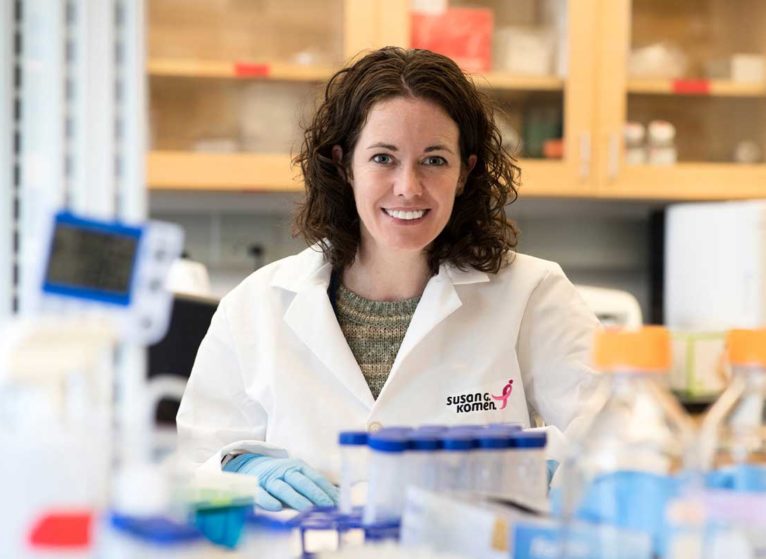You may have heard of the gut-brain connection. But you may not know there's a gut-breast connection, too. UVA Cancer Center researchers shed light on this relationship. Here's what they found: An unhealthy gut triggers changes in normal breast tissue. This helps breast cancer spread to other parts of the body.
This discovery could help scientists find ways to keep breast cancer from spreading in patients. Once it spreads, few women or men survive breast cancer.
This fascinating gut-breast cancer research makes us want to know more. We turned to the researchers to answer key questions.
What's Our Gut Microbiome?
The gut microbiome is the collection of tiny organisms like bacteria that naturally live inside us. They do a lot for our health. But they can be disrupted and become unhealthy by many things, including:
- Poor diet
- Long-term antibiotic use
- Obesity
How Does a Sick Gut Make Breast Cancer Spread?
Facing Breast Cancer?
Find the latest treatments and a compassionate, supportive care team at UVA Cancer Center.
UVA Cancer Center’s discovery shows that a sick microbiome reprograms important immune cells in healthy breast tissue. These immune cells are found in our blood and are called mast cells. This helps cancer spread outside the breast (or metastasize).
Melanie Rutkowski, PhD, led the UVA Cancer Center team that made this discovery. She's a pioneer in showing the surprising relationship between gut health and breast cancer. Her research team's latest work reveals complex interactions between our gut microbes and mast cells in the breast.
What Did UVA Cancer Center Researchers Discover?
They found an unhealthy gut can change healthy breast tissue. These changes bring in mast cells. And when these cells accumulate around a breast cancer tumor, they turn the breast tissue into a prime launching ground for cancer to spread to other parts of the body.
The scientists also found that mast cells increased the amount of collagen in breast tissue. More collagen made cancer spread to the lungs sooner than expected.
The researchers then looked at tissue samples taken from people with a common type of breast cancer. This cancer is known as hormone receptor-positive breast cancer. These patients had increased numbers of mast cells and a higher amount of collagen. What's more, these patients were more likely to have their breast cancer come back after treatment.
How Can This Research Lead to Better Treatments?
One day, Rutkowski says, doctors may be able to target this gut and mast cell relationship in patients with breast cancer. This could help prevent their cancer from returning and spreading. They also may be able to identify patients most at risk for cancer coming back after treatment.
“Our research has identified possible intervention points that could be targeted for a customized approach to therapy. The ultimate goal would be to improve survival for patients diagnosed with breast cancer," said UVA Cancer Center researcher Tzu-Yu Feng, PhD.
The team's findings were recently published in the scientific journal Cancer Immunology Research.
Why Does UVA Cancer Center Do This Type of Research?
This cutting-edge research is part of UVA Cancer Center’s urgent mission to better understand and better treat cancer.
UVA Cancer Center is one of only 52 cancer centers in the country designated a Comprehensive Cancer Center by the National Cancer Institute. This designation means UVA Health has one of the nation's most outstanding cancer research and treatment programs.



So, what do I do to keep my gut microbiome healthy?